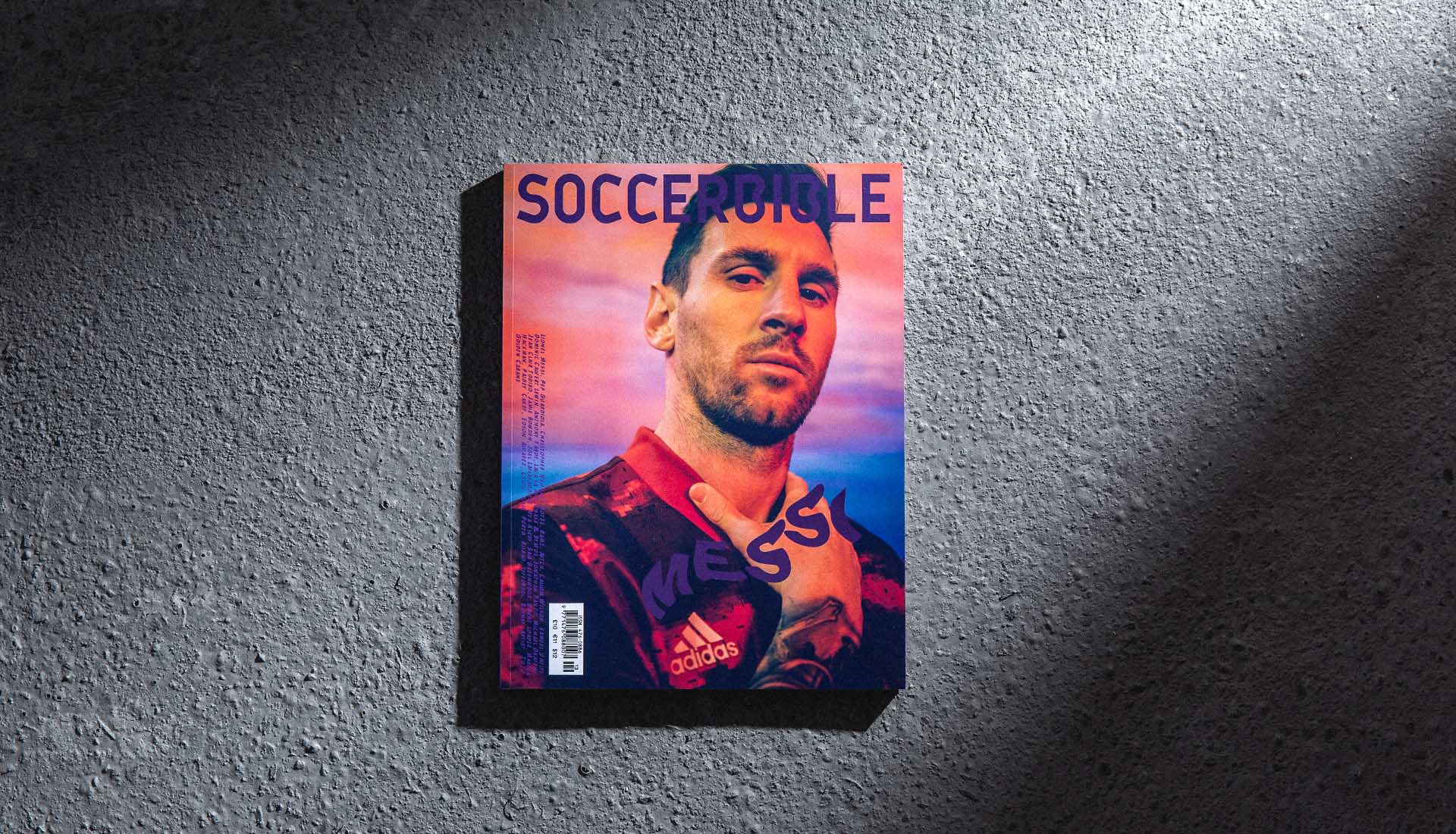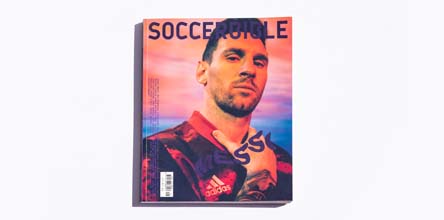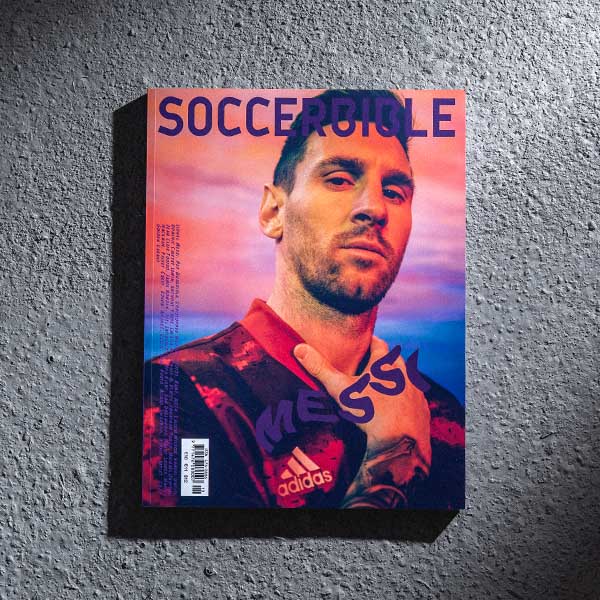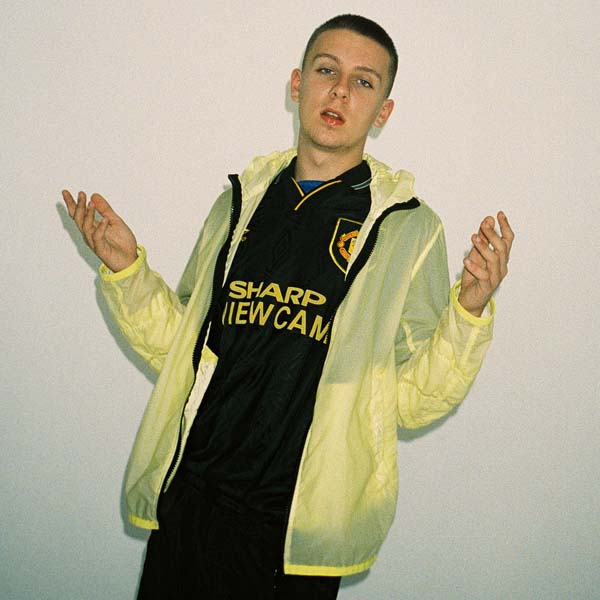The sheer scale of Leo Messi’s achievements at Barcelona is dizzying. Ten La Liga titles. Six Copa del Reys. Eight Spanish Supercups. Four Champions Leagues. Four European Supercups. Three Club World Cups. Six Ballon d’Ors. Over 600 goals. All in the space of 15 seasons.
It’s not the numbers, though, that truly tell the story of Messi. It’s the moments. Take his first-team debut back in 2003, for example. Coming on as a sub in the latter stages of a friendly at FC Porto’s newly opened Estadio do Dragao, the No.14 shirt on his back a couple of sizes too big, a 16-year-old Messi jogs onto the pitch as if he’s joining his mates at the park for a kickabout. Fifty seconds later, and there it is, the feint that would bamboozle defenders for years to come, as Messi puts future Portsmouth favourite Pedro Mendes in a spin. For onlookers, that’s about how long it took to realise that this kid from Argentina, the shining light of Barca’s youth teams, wasn’t just the real deal, he was a potential world-beater: under a minute.


In the 16 years that have followed, Messi has redefined what’s possible in football. At his best, he is, quite simply, unstoppable. Think of the goals. The dribble from the halfway line against Getafe in 2007; running rings around Real Madrid in the Champions League semi-final of 2011; beating four Bilbao players before rifling in to set Barca on the way to another Copa del Rey triumph in 2015. Are there defensive mistakes, individual errors? No, it’s just Messi being Messi. He’s provided us with more thrills, more excitement, more moments of exasperated disbelief than any other footballer in the history of the game, because he can do things no one else can. To watch Messi is to continually revel in the stupendous.
We are privileged, therefore, to have witnessed the Messi era – and it’s not over yet. Thankfully, while Barcelona president Josep Maria Bartomeu acknowledged this summer that the club had begun preparing for life after the little magician, Barca’s talismanic No.10 isn’t planning on hanging up his boots anytime soon. Here, in our exclusive interview conducted shortly after his 32nd birthday, Messi reflects on his career so far as we talk fame, success, and the spontaneous brilliance that’s brought fans everywhere so much joy.
You’re probably the most complimented player in the world. What’s that like to deal with?
I try not to pay too much attention to the praise, because, at the end of the day, you just want to improve, and when I'm out on the pitch, I know that there are things I could do better, so I look to focus on that and do the best I can. Of course, when people within football say nice things about me I'm grateful to them because it's a form of recognition. But I try not to let the criticism or the praise affect me too much in my day-to-day life.
For everyone who watches you, you’re different, you’re one of a kind. But for you, does it feel like you’re just doing your day-to-day job?
Yeah, that's pretty much it. I'm really lucky to be able to work professionally in the thing I like the most, which is football. For that reason alone, I consider myself to be in a privileged position because, unfortunately, not everyone has the chance to work in what they enjoy doing most. I try to do my job as well as I can and as professionally as possible.
Do you ever surprise yourself on the pitch?
Rather than on an individual level, at this stage of my career, I focus a lot on the team and I've always paid most attention to what we achieve as a team. There are times when I can see that we've performed really well in games, all worked together and everyone has done their bit and that's a real joy and really motivates me. I enjoy making a contribution to the team to improve our results.


Do you watch goals back and think “I don’t remember thinking I was going to do that, it just happened”?
Yeah, I've said in the past that I struggle to put the way I play into words. I just take to the pitch and always try to look for the best option and, most of the time, things just come to me naturally, without having to think much longer than a second before making a decision. I certainly try to be really focused so as to be ready every time I'm involved in the game.
Looking back to when you made your Barcelona debut, what would you say is the biggest difference between that Messi, aged 17, and the Messi of today?
I honestly don't think that there are many differences. Well, perhaps when you're 17 you never feel any aches or pains, you can sleep less and it doesn't matter, eat worse and you don't feel any different… As for my mentality, I remain the same, and with the fitness side of things, I've just tried to look after myself even better as the years have passed.
Was there a specific moment in your career when you felt like you had “made it” or “arrived” as a world-class player?
It's all happened so quickly and naturally. I've improved as a player over time and don't recall a moment or point in time when there was any particular realisation. It was more like a progression and a development that just happened.
Have you found that opponents are nicer to you as you’ve become more established because they respect you so much? Or do some players still try to kick you and trash talk you on the pitch?
On an individual level, I think that I'm treated just like any other opponent. Because of my attributes and the position I play, they perhaps try to stop me when I head towards goal, but it's the same for the strikers, who are more tightly marked from behind and are really made to battle in the air or when they play with their backs to goal. On a team level, it's perhaps true that the teams we face in La Liga or the Champions League, when we're the favourites, have always got that added motivation to perform well against us. But I appreciate that happens with all the big teams.
There have been so many times when opposition fans have clapped you off the pitch or sung your name. Is that always a strange feeling?
Yeah, totally. It's not normal that the opposition's fans should get behind you, in whatever way that may be. When it happens, I say thank you, but more for the feeling it gives me that even the opposition are capable of recognising our work.
How aware are you of the records you're beating? Do you know about them before certain games, or does somebody tell you about them afterwards?
Most of the time I don't know if I've broken a record or if I'm close to doing so. I don't focus much on individual achievements. I only hear about them if I happen to read about them somewhere or if someone tells me. But I don't usually ask or focus all that much on them.


A lot of people talk about what makes the English Premier League so unique. For you, as someone who knows it so well, what makes La Liga so special?
I think that both leagues are very competitive and that the players that play in them are of the highest quality. Given that I began my professional career with Barcelona, my hope was always that, one day, I would play in La Liga, a competition that's always attracted me and which I've followed since moving to Spain. While it's true that in recent years we've managed to go almost unbeaten throughout the whole league season, it's also true that anyone can beat you if you're not focused and fail to perform to a high standard. There are some excellent teams who are extremely competitive and always give us a really tough game. Then, of course, there are the El Clasico matches, which is one of the most special games in world football. I also really like the Premier League because I think that it too is an exciting league with teams of real quality.
Since we’ve mentioned the Premier League, Pep Guardiola is leading Manchester City’s most successful period in their history. How impressed have you been with his ability to bring success wherever he goes?
I'm not surprised by it at all. As a coach, Pep is unique. He foresees everything that's going to happen in a game and that makes him really special because, regardless of how much someone has coached here, there and everywhere, in this league or that league, that quality is what allows him to succeed and do well wherever he goes.
Footballers are people of routine. One day you won’t be a Barcelona player anymore. What’s that thought like? Of waking up and not having to go into training?
In truth, I don't know. It's not something that I think about because I prefer to live in the here and now and just enjoy the fact that I can still perform to an elite level, and that I'm in really good shape, both physically and mentally, to continue to do so.
People will ask what a Barcelona after Messi will look like. Do you think the first season after you eventually leave will be a strange one for players and fans?
This club has always had world-class players who one day had to retire or ended up leaving for other teams. The club comes above everything and everyone. That's always been the case and that won't change when the day comes for me to leave. Whenever a player who had been in the first team for a long time left it was a bit strange for those of us who remained at the club. It happened with Puyol, Xavi, Iniesta, Ronaldinho, Deco, Mascherano, Valdes, Dani Alves… to name just a few. But for those of us who remained there was no option but to work hard and carry on performing as well as we possibly could. When I leave, there'll be great players in the team and others will continue to join to make it one of the greatest – for me, it's the best – clubs in the world, as has always happened.
Does the thought of one day not playing football scare you?
I don't think about it that much but, of course, when it has come into my mind, it's a strange feeling. I've always played football and, obviously, having to give it up overnight will be tough. I hope it's still a long way off yet [laughs].
On the other hand, what excites you most about retirement?
Now that I've got a family and we've got three children, the good thing about it is that I'll have more time to enjoy things with them. It really does make me so happy when I get to spend time with my wife and the boys, I really enjoy it and feel right at home. The same goes for my family and friends – I'm sure that I'll be able to spend more time with them when I don't have to follow the strict schedule that you have to as a professional footballer and that'll be really good. Perhaps the only other good thing about retiring is that I'll be able to eat a bit more chocolate and other such less healthy things and treats that are pretty much a no-no for me at the moment.


Is Barcelona your home or is it your place of work? Do you and your family see yourselves living here when you stop playing?
Barcelona has become both things, it's where I work and somewhere I also consider as home. You never know where you'll end up at each stage of your life, but I've always said that our plan is to be in Barcelona for a long time, even when I'm no longer playing football. That said, given that I'll have more free time, I'll likely spend more of it in Argentina because we love going there and really enjoying visiting because we get to see a lot of family and friends that we miss when we're over here.
How much has football changed in the last 20 years and what do you think will be the biggest changes in the game over the next 20 years?
Things have changed across the board, although perhaps what I've paid most attention to are the purely on-field matters. For me, there's been a change in terms of fitness. Players are becoming stronger and have been working on and taking care of their fitness to a far greater extent, while the tactical side of the game is increasingly being worked on in more depth. In both cases, I understand that the application of new technologies has helped to move things in that direction.
Your career has seen your face become one of the most recognisable in the world. What’s it like dealing with fame?
I deal with it as naturally as I can. At times, I would like to have more privacy, of course, but I also understand that it's part of our lives as footballers.
You see people wearing Messi shirts in the most random of places all over the world. Is it still a surreal feeling when you see that?
Yeah, I think that it's interesting, particularly when we go to faraway places, where football isn't perhaps the most popular sport in those countries.


Are your children aware of your fame and success as a footballer? Does Thiago watch your videos on YouTube?
They're still too young to understand all of it. We take Thiago and Mateo to the stadium and they're starting to enjoy football, but I don't think that they're yet able to understand everything that me being a professional footballer involves.
We’re seeing players like Justin Kluivert and Tim Weah making their own names in the game today. Have you thought about how the “Messi” name will affect your children if they pursue a career in football?
I haven't got a clue. As I say, they're very young and I don't know whether they'll want to play football or end up doing other things. That's something for them to decide and they also have to realise that becoming a professional footballer isn't easy.
You’re used to winning all the time. What are you like when it comes to competition away from football? Is there anything you’re not good at?
There are far more things that I'm not good at compared to those that I am good at… But I'm competitive in everything, I don't like losing. When I play cards with my friends, I want to win then too, and when we play parchis [a Spanish cross and circle board game] with my teammates on away trips, if I don't win I get a bit upset [laughs]. I like winning; when I compete in something I do it to be successful. Although I've also accepted that you can't always win and you've got to overcome the frustration of defeat to be able to keep going and improve.
Many people would love to live a day in the life of Leo Messi. But if you could swap places with a regular person for one day, what would you do?
I guess that I'd spend the whole day out and about, strolling around my favourite places in Barcelona and Rosario, for example, where it's virtually impossible for me to go now and where I maybe miss not being able to go with total freedom and go unnoticed while with my family.

Read the full interview in SoccerBible Magazine Issue 13. Pick up a copy here.






















